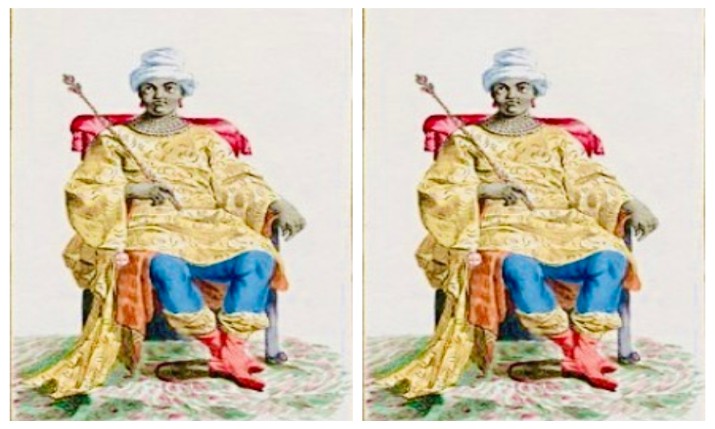After overthrowing his uncle Pedro Nkanga a Mvemba, King Diogo, who was the grandson of King Afonso I of Kongo, took the throne. This resulted in his uncle seeking sanctuary in a church located in Sao Salvador.
After overthrowing his uncle Pedro Nkanga a Mvemba, King Diogo, who was the grandson of King Afonso I of Kongo, took measures to consolidate his power. He believed that the Portuguese were interfering in the affairs of his kingdom and posed a threat to his rule. As a result, he cut ties with them and expelled all 70 Portuguese nationals from his kingdom in 1555.
According to historical records, Pedro Nkanga a Mvemba planned his conspiracy from the church where he sought refuge. He received the support of some Kongolese lords who had pledged their allegiance to him.
King Diogo on the other hand, enlisted the help of his magistrate and purveyor, Jorge Afonso, to carry out an inquest. He gathered testimonies from Kongolese lords who had pledged loyalty to him, as well as from those who claimed to be neutral in the kingdom, in order to root out conspirators.
The king faced a difficult task of purging the kingdom of plotters, many of whom were in his court and had been loyal to the former king. He had to strike a delicate balance between eliminating the plotters and risking making new enemies, or delaying and deepening the threat to his rule.
King Diogo implemented a deliberate but measured approach, replacing those loyal to the former king in phases, and expelling them quickly once he was ready. After silencing his detractors, he turned his attention to reducing the influence of the Portuguese in the internal affairs of Kongo.
Historical records indicate that he had disagreements with the Portuguese settlers at Sao Tome, who were known as Tomistas. Under an agreement between Kongo and Portugal, the Portuguese were only allowed to trade for slaves within Kongo’s region. This meant that the Portuguese could only purchase slaves given by Diogo or his appointed agents. However, the Portuguese did not comply with this agreement.
According to a report by Just World News, the Portuguese settlement at Sao Tome, known as the Tomistas, breached their agreement with the Kingdom of Kongo by sailing upriver to purchase slaves from BaTeke traders, who were becoming increasingly interested in European goods instead of the nzimbu shells offered by the manikongo. This violation of the agreement enraged King Diogo, leading him to sever relations in 1555.
In 1548, during his reign, Diogo welcomed Jesuit Catholic missionaries, rumored to be in opposition to secular and Capuchin priests. However, in 1555, Diogo changed his allegiance from the Jesuits, leading to their deportation from the region after they asked him to give up all his possessions.
In 1557, he invited Franciscan missionaries to the kingdom and converted to their faith remaining loyal to them until his death in 1561.
